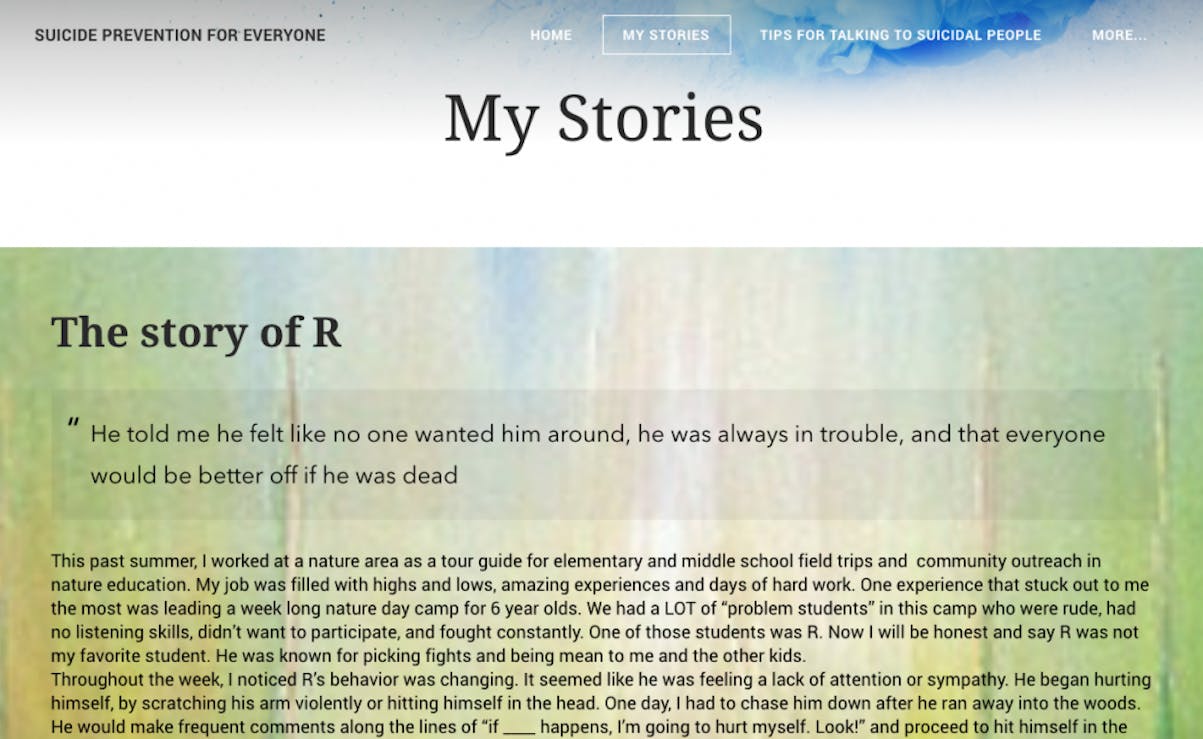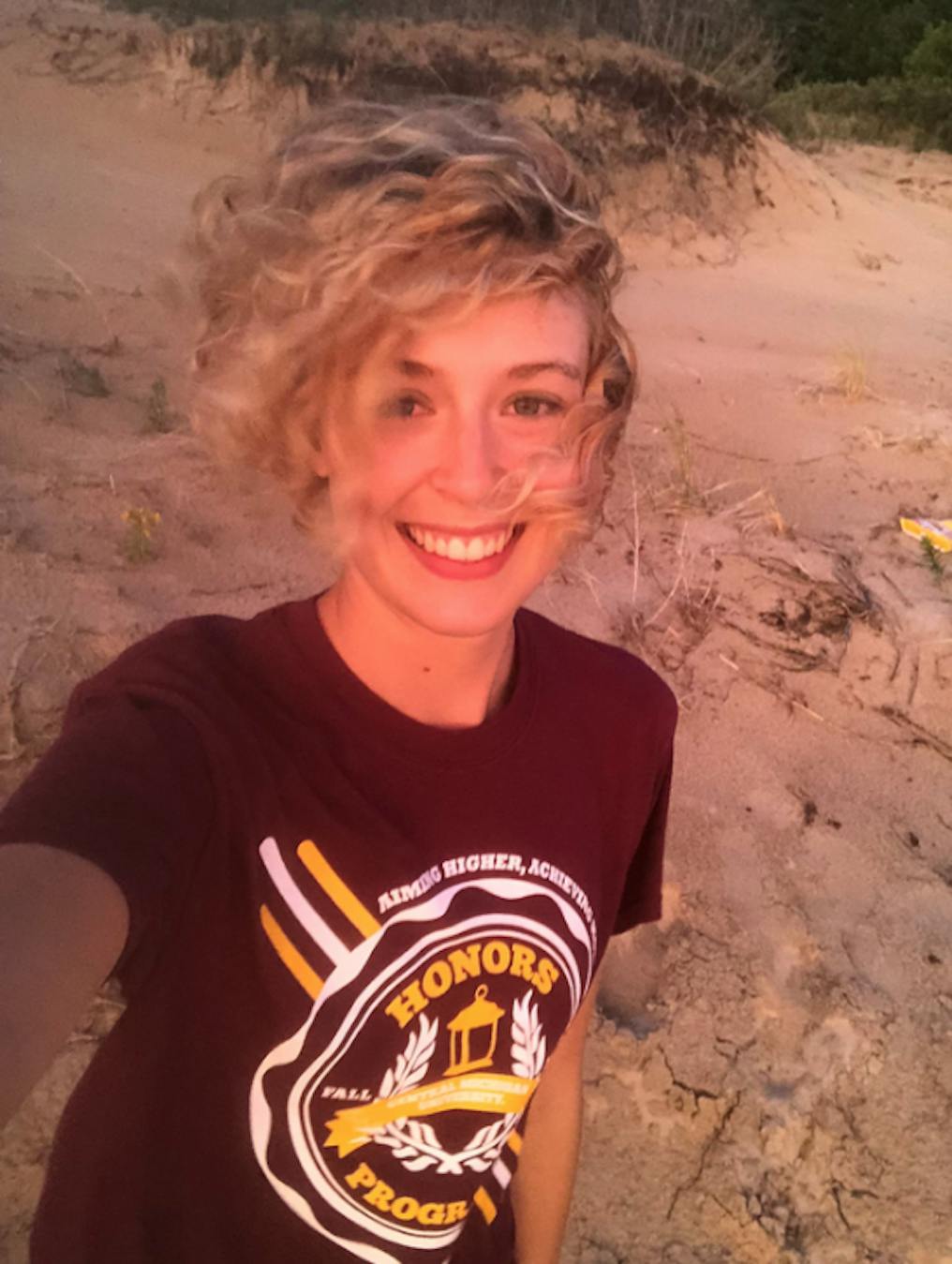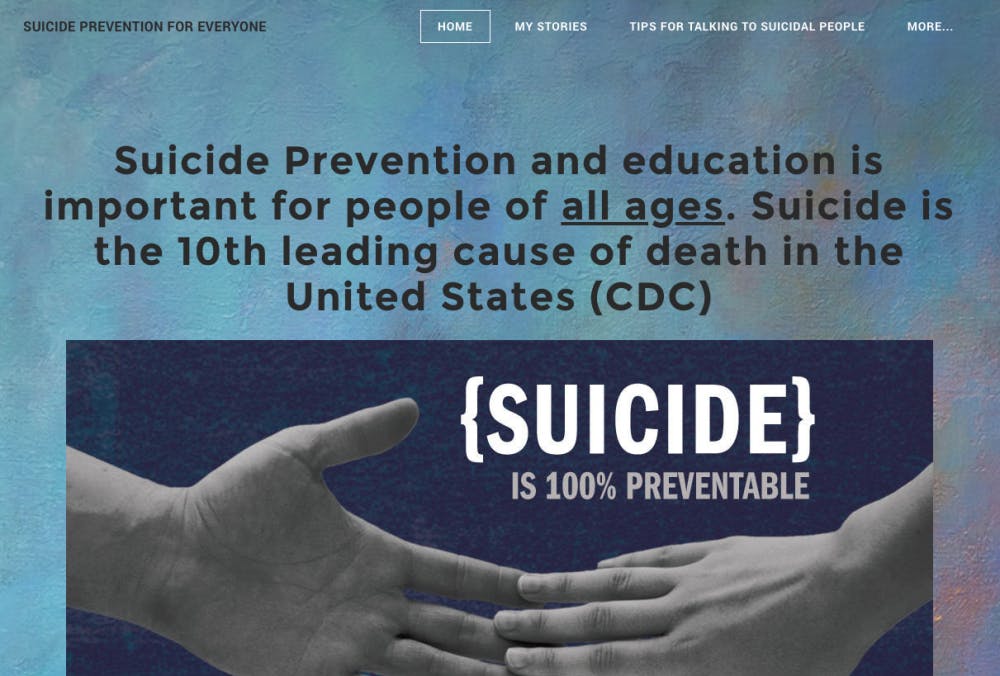Student creates awareness of childhood suicide with website
Baily Goetz did not expect to become well versed in childhood depression after taking a summer job at a nature center, but an experience with a troubled kid inspired that change, and a website.
Goetz, a junior from St. Joseph who prefers to go by gender neutral pronouns, took the initiative last semester to create a Weebly website about their experiences with children who have morbid or suicidal thoughts. The website, called “Suicide Prevention for Everyone”, includes tips, contact information for suicide helplines, and personal stories Goetz has had talking to kids with these issues.
“I kept thinking about the experiences that I’ve had,” Goetz said. “I wasn’t aware that children could be suicidal. I wasn’t aware that they could have depression until I experienced working with kids having those problems. I wanted to spread awareness that this problem does exist, and that it needs to be taken seriously.”
Suicide is the 10th leading cause of death in America for all ages, according to Suicide Awareness Voices of Education.
According to a 2016 CNN article based on government data, the rate of suicide deaths among children between the ages of 10 and 14 has doubled since 2007, but research might be limited with younger age groups.
Goetz said the main catalyst to create this site came from an experience working at a summer camp in 2017. The website says Goetz led a group of six kids who were not well behaved. One of these kids, who is referred to as ‘R’ on the website to protect his identity, was one of these troublemakers. He would start fights and pick on the other children.
He began scratching his arm, hitting his head, and made claims of suicide and self-harm. Goetz was shocked.
“He would always try to say ‘maybe I should just kill myself because I’m causing all these problems,'" Goetz said. “And I said ‘No, you shouldn’t do that.’ As we got to talking some more, I realized that he did want to hurt himself. This is a six year old. That’s insane!"
Despite the shock, Goetz was able to help 'R' think of positive things the kid enjoys, such as Pokémon and nature. Goetz said it’s important to focus on the positives with kids. And while Goetz knew they needed more help, it was a good first step.

“A random camp leader having conversation with you isn’t going to solve your depression, (but) it helped bring up the root problems,” Goetz said. “Adults and others should take these problems seriously, and realize these problems are real.”
Goetz said it's important to get kids to focus on the positives aspects of their lives. The Child Mind Institute, a non-profit organization that works with kids and families with mental health issues, also says it's important to keep things positive with depressed kids. This means doing fun activities and to not criticize them.
Goetz also learned through past babysitting jobs and other experiences with kids, that they understand death more than adults may realize. Goetz said that once a girl around seven years old told them that she wanted to pass away before her relatives do because she feared the grief that would come from losing them.
The combination of these experiences eventually lead Goetz to create the website. They began with researching childhood depression, by looking at online resources for parents with kids who are suicidal.
Goetz also said children relate to them very well and tend to look to them for advice.

Baily Goetz
“I relate to kids really well,” Goetz said. “They see me as more of an equal, and as somebody they can talk to. I love kids. I love talking to them and relating to them. Often they reciprocate that.”
At first, the website only had two personal stories and few tips.
As time went on, Goetz expanded the website to have pages dedicated to personal stories, tips for talking to people with suicidal thoughts, contact information and a collection of suicide help lines. They try to update the site semi-regularly.
The tips listed on the website mostly focus on talking with suicidal and depressed children. The main piece of advice Goetz gives is to take children seriously when they say they have thoughts about harming themselves.
On the website, Goetz says to not “belittle” kids’ feelings, and understand they aren’t faking them for attention. This could lead to them feeling isolated and make the depression worse. Goetz also recommends that parents frequently check in on their child’s well-being.
Goetz wants to continually add more content to the website, including more tips and expanded advice for dealing with peers who have suicidal thoughts. They want this website to be a well-known and helpful resource for parents and people to help others.
“I really want it to be a place that people can go to if they were in a situation where they’re dealing with a suicidal child,” Goetz said.






